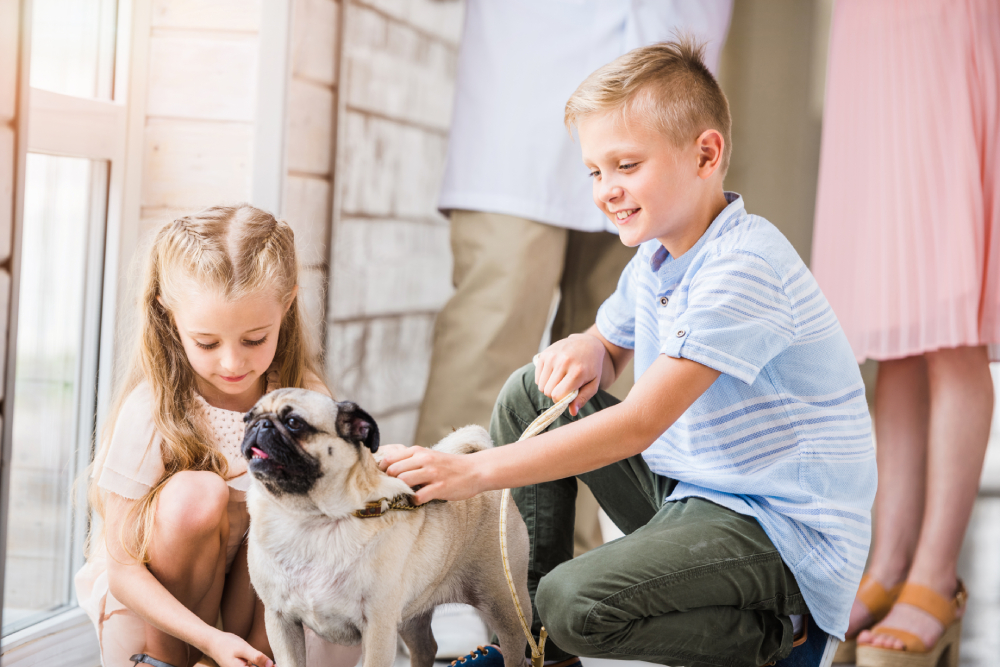Pugs are a real favorite because of their compact, adorable appearance and spunky personalities. These dogs were literally bred to be companion animals and they are super affectionate with people.
Not only are Pugs incredible companions, but they make pretty good watch dogs, too! Don’t let their little size fool you. They will alert you of everything—even if it’s just a leaf scuttling across the yard. But how good are they with kids? We’d dare to say fantastic!

Pugs Are Perfect for Families
Pugs are incredible family dogs—any Pug owner would agree! These fun-loving little furballs absolutely thrive being the center of attention, so they will adore getting pets from each person in the home.
These types of dogs tend to be pretty equal with their affection. They will take attention where it is given. They love interaction with kids, interaction with pets, and interaction with just about anyone they encounter.
The Pug is really an all-around perfect dog for the family. They are tolerant and excitable enough to match children’s energy levels while affectionate and sweet enough to cuddle up with owners. They will definitely be a friend to all family members.
These types of dogs are great for their size as well, not knocking down children or being rambunctious around them either. However, Pugs might not be the best fetching dogs. These pups prefer more even-paced activities and games rather than chasing a ball or other games that cause them to exhibit prey drive.
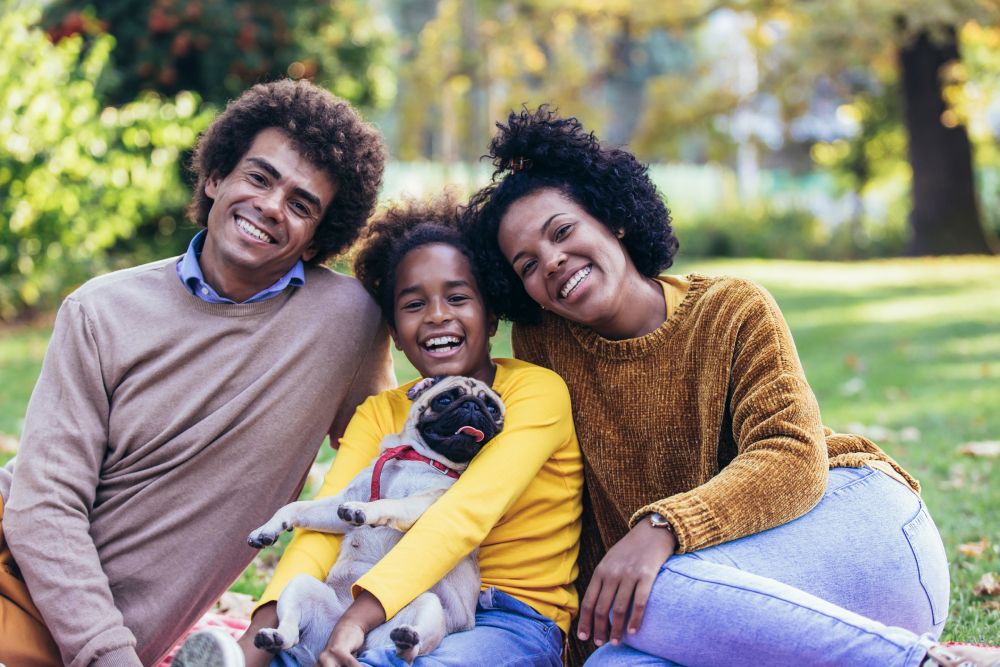
Socialize Your Pug Appropriately
Even though Pugs are super easy to socialize, as there’s not much convincing needed, it is still an important thing to do. If your Pug is only ever at your house around members of your family, and never out seeing anybody else in the world, they can be shy, timid, or even on edge around other pets and people.
Pugs can be incredibly social little dogs that love to get into everyone’s business. They will happily attend parks, backyard barbecues, and all in between with you and your family. They tend to never meet a stranger, but they can be shy and reserved in certain situations.
When your puppy is little, it is important to show them lots of new and unfamiliar faces so they get used to the concept.
Integrating an Adult Pug to a Family with Kids
Integrating an adult dog can be quite challenging sometimes. If a Pug lived with a sweet little old lady in a home without much commotion, switching to a big, chaotic family can be very challenging.
It isn’t that they won’t acclimate or can’t end up loving the lifestyle, but it is harder to teach an old dog new tricks, as they say. If a Pug is very used to a quieter lifestyle, they might get annoyed or even intolerant towards smaller children. It’s a very good idea to do a meet-and-greet and take other precautionary measures when introducing a Pug to a home with small, rambunctious children.
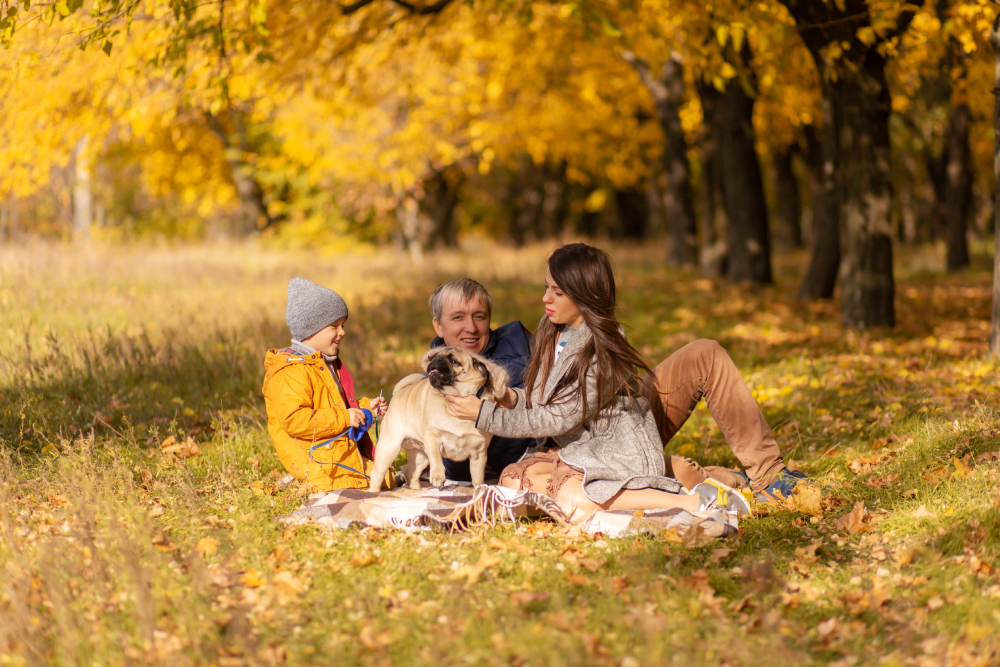
Considerations for Pugs with Kids
Even though Pugs make amazing family members, that doesn’t necessarily mean they’re best suited for every situation. When you mix dogs and children, there are tons of considerations and precautions that you want to take.
Supervise Your Child
Children need close supervision while they are very young. We all know that babies, toddlers, and many young children don’t have the best body control. They tend to pinch, pull hair, and even hit when they get excited, angry, or upset.
It is important to have direct supervision over the situation so that you can teach your child how to appropriately interact with a Pug. You have to remember that Pugs are very small, so they might get hurt quite easily if you aren’t careful.
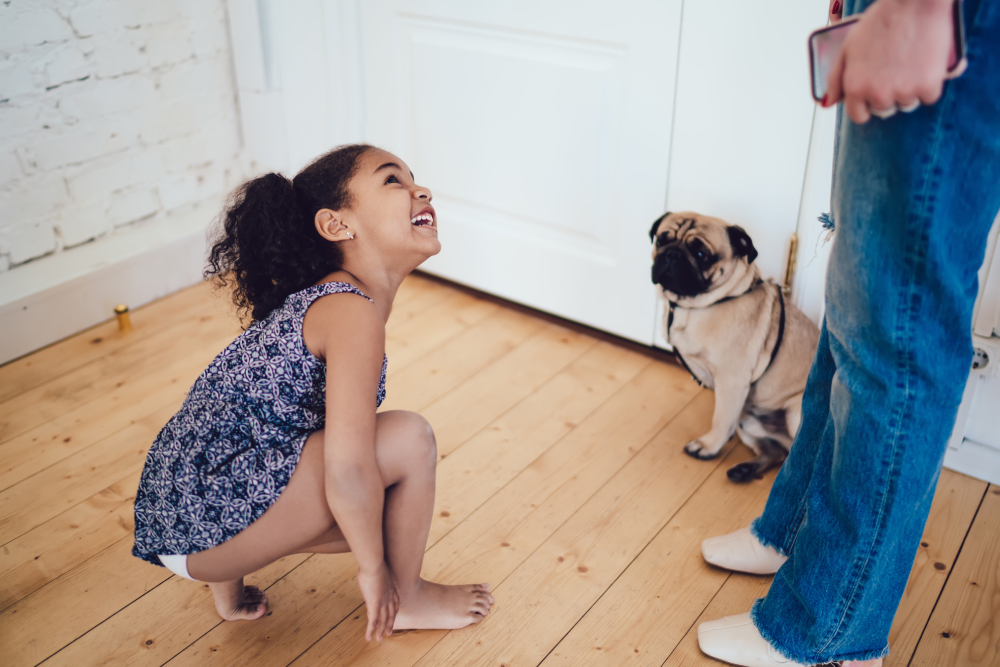
Teach Your Child About Respect and Boundaries
Because dogs don’t have their own voice, it’s important that you be theirs. That means, it is absolutely necessary to teach children proper boundaries and respect when it comes to animals. You should always teach your child how to assess a dog’s body language and mannerisms. They need to understand that an animal’s body is not a play toy or something they can roughhouse with.
The more you teach them, the more they will understand when their pup just isn’t in the mood to play, is eating, or is doing something where they shouldn’t have direct attention on them at that point in time.
Children are not naturally skilled in understanding body language of any kind. Because a Pug is very small and super cute, they might look at the dog as a plaything rather than a living creature with autonomy.
Remember, Pugs Are Brachycephalic
Pugs aren’t like most dogs. Like many others that look similar, such as Boxers, Shih Tzus, Lhasa Apsos, and Boston Terriers, Pugs are brachycephalic. What this means is that they have large protruding eyes and short skulls giving them that adorable appearance.
While this might be part of the charm, it can also cause a lot of problems. These aren’t the best candidates for backyard play during extreme temperatures. So, whether your children are outside building a snowman for hours or splashing around in the pool, a Pug is very sensitive to extreme hot and cold temperatures.
In the hot temperatures, it makes it very hard for them to breathe, which can, in turn, affect their lungs and heart. In the cold, their small bodies aren’t able to retain proper body heat, which can be equally problematic.
Understanding their unique needs will help you and your children keep your Pug in sound health during these times.
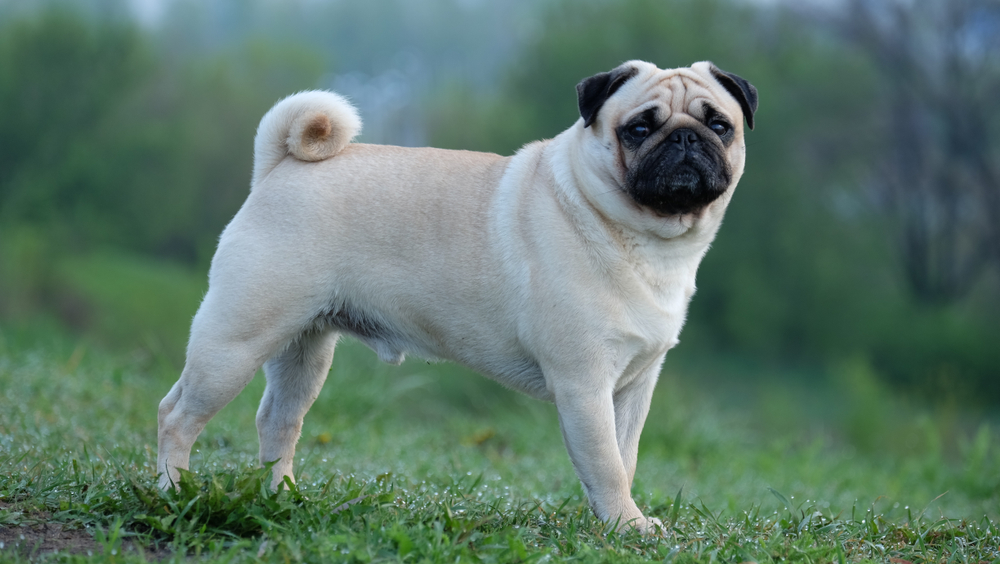

Conclusion
Now you understand just what to expect with Pugs and kids—they are a perfect match. Naturally, you will always need to properly socialize the dog and teach your kids respect with animals.
Pugs can be a fabulous addition to many homes, but always make sure to do your research. Just because they have a cute face doesn’t mean every aspect of owning a Pug gets a thumbs up for your lifestyle.
Featured Image Credit: LightField Studios, Shutterstock
